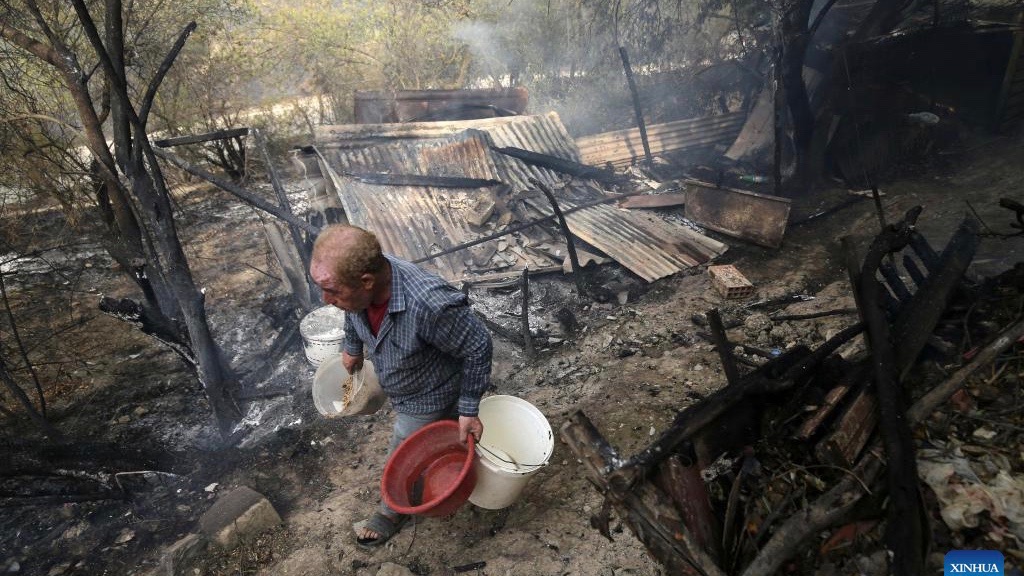At least 34 Algerians, including 10 armed forces members, have died in the wildfires raging across Algeria over the past few days. The wildfires, caused by a massive heat wave across the Mediterranean region, have forced large-scale displacement in the north African country, media reports stated on Monday, July 24.
According to the Interior Ministry, the temperature hit a record 48 degrees Celsius in the last few days and has remained high, leading to over 97 blazes in 16 provinces across Algeria, mostly in the north-east of the country.
The ministry stated that rescue and fire fighting measures are ongoing in most of these provinces and that thousands of people have been evacuated so far. It reported that at least 15 people have been injured in the wildfires.
Wildfires and high temperatures have become the norm in Algeria for the last couple of years. In 2021, at least 90 people were killed in such fires, mostly in the north-east. Last year, at least 37 people were killed in the northeastern El-Tarf province bordering Tunisia.
This year, high temperatures and wildfires have been recorded all across the Mediterranean region, with Greece experiencing one of the worst wildfires in its history. Italy is also facing a similar situation.
According to reports, neighboring Tunisia recorded temperatures nearing 50 degree Celsius on Monday. It is also witnessing wildfires, forcing the government to deploy armed forces for rescue and fire dousing exercises.
Scientists have warned that the Mediterranean is likely to be a global hotspot for the effects of climate change. The United Nations Intergovernmental Panel on Climate Change (IPCC) warned that the region is warming faster than the global average and will see frequent heat waves, wildfire, droughts, and high seas in the coming days.





